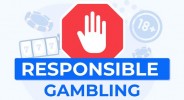
Smarter Bet Guide to Blackjack
Responsible Gambling in the Digital Age: Tools, Challenges, and the Path Forward

In the era of digital betting, where gambling is just a tap away, responsible gambling has become more than just a regulatory checkbox — it’s a crucial safeguard. While iGaming continues There are occasions when we here at ReadyBetGo want to bring you interesting facts about the gambling industry When something catches our eye, we will publish it for your enjoyment.
There are occasions when we here at ReadyBetGo want to bring you interesting facts about the gambling industry When something catches our eye, we will publish it for your enjoyment. 
to expand and innovate, the shadow of gambling-related harm has grown alongside it. Responsible gambling today is about proactive prevention, accessible support, and player empowerment, especially as online behavior and technologies evolve rapidly.
The Shifting Landscape of Gambling Harm
Over the past 15 years, the nature of gambling problems has changed dramatically. Where once land-based venues were the dominant source of concern, today’s helplines are seeing a significant shift. In 2024, nearly 15% of calls referenced online gambling activities — including not just casino games and sports betting, but also high-frequency trading in cryptocurrency and stocks. These high-risk, high-frequency digital wagers are blurring the line between financial speculation and gambling.
While this uptick in calls may reflect greater public awareness and better access to support, it also raises concerns about the increased speed and intensity of harm associated with online gambling. Research from European markets shows that digital access accelerates how quickly someone may experience problems. Players are losing money faster, developing compulsive behaviors more rapidly, and reaching crisis points with fewer warning signs than ever before.
This trend is especially relevant as operators continue expanding their reach through digital channels, including casino PPC campaigns designed to target specific search terms and player profiles. While effective for acquisition, these campaigns must also be balanced with robust responsible gambling messaging to ensure they’re not contributing to problem gambling behaviors.
Responsible Gambling vs. Problem Gambling: Understanding the Difference
A common source of confusion is the distinction between responsible gambling and problem gambling. Both terms are often used interchangeably, but they serve very different purposes.
- Responsible gambling focuses on prevention. It provides tools, education, and guardrails that help players stay in control of their behavior.
- Problem gambling describes the condition where an individual has lost control, often requiring intervention, treatment, and ongoing support.
Importantly, responsible gambling tools cannot guarantee immunity from gambling disorders. However, they significantly lower the risk of harm and help players recognize warning signs early — which is critical for long-term player safety.
The Reality of Underfunded Support Systems
In some major gambling markets, including jurisdictions with large populations and growing online betting activity, support services are stretched thin. Despite offering statewide programs, public education, and free treatment options, funding per capita often falls behind national averages. In many regions, gambling-related issues receive just a fraction of the funding allocated to substance use disorders, despite affecting millions.
This underfunding has ripple effects: a lack of updated prevalence surveys, limited public awareness campaigns, and insufficient resources to scale support as demand grows. For responsible gambling to be effective, it needs not only the right tools but also the right level of investment and visibility.
A Modern Toolkit for Responsible Gambling
Responsible gambling initiatives can be grouped into three core categories: prevention, harm reduction, and support infrastructure. Each plays a vital role in creating a safer gambling ecosystem.
Group 1: Information and Prevention Tools
These tools are designed to raise awareness and help players monitor their own behavior.
- Game Pauses & Timeouts: Players can voluntarily take a break from gambling for a set period — hours, days, or weeks — often integrated directly into the platform.
- Deposit & Spending Limits: Players can set caps on how much they can deposit or wager within a certain timeframe, helping prevent impulsive overspending.
- Reality Checks: Pop-up messages that remind users how long they’ve been playing or how much they’ve spent. These gentle nudges bring players back to awareness mid-session.
- Gamble Responsibly Messaging: In regulated markets, promotional materials are required to include responsible gambling warnings and links to support services.
Group 2: Harm Reduction & Reactive Measures
These tools assist players already experiencing signs of harm or addiction.
- Self-Exclusion Options: Players can exclude themselves from gambling platforms for set periods — or permanently. Some systems also allow family-initiated exclusions via legal action.
- Marketing Opt-Outs: Self-excluded users should not receive any marketing communication. Operators must implement filters to block ads for at-risk or restricted individuals.
- Addiction Screening Tools: Questionnaires and behavioral tracking can help identify users who may be developing a gambling disorder, triggering tailored interventions.
Group 3: Support Systems & Health Infrastructure
No matter how robust platform-based tools become, players need access to human support.
- Gambling Hotlines: Toll-free numbers offer direct assistance and referrals to treatment. These lines are critical entry points for those in crisis.
- Therapeutic Programs: Many jurisdictions offer no-cost access to counseling or group therapy for gambling harm.
- Research & Public Education: Ongoing data collection, academic studies, and awareness campaigns help shape better policy and more effective tools.
The Emerging Role of Regulation and Voluntary Compliance
While many responsible gambling tools are mandated by law, their effectiveness increases when adopted voluntarily by operators. A true culture of responsibility goes beyond compliance — it requires collaboration between regulators, platforms, and players.
Creating a player-first environment means building responsible gambling tools into the very core of user experience. This includes:
- Making tools visible and easy to access
- Ensuring tools are mobile- and desktop-friendly
- Personalizing responsible gambling options based on player behavior
- Normalizing their use as part of healthy gaming habits
Looking Ahead: What Needs to Change
As online gambling evolves, so must the industry’s approach to harm prevention.
Here’s what the next phase of responsible gambling should focus on:
- Funding parity: Support services must be funded proportionately to gambling’s growth and impact.
- Education: Players need clear, relatable information about risk — especially younger and mobile-first users.
- Cross-border consistency: As players access international platforms, responsible gambling tools must be standardized globally.
- Early intervention: More tools are needed to detect risky behavior before it becomes harmful.
- Ongoing research: Markets need updated data to understand who is at risk and how to help them.
Final Thoughts
Responsible gambling in the digital age is no longer just about minimizing harm — it’s about empowering players, improving platform ethics, and protecting public health. While many tools and resources now exist, there’s still work to be done to ensure they’re widely adopted, properly funded, and easy to use.
With the right mix of technology, education, and empathy, the iGaming industry can create an environment where entertainment and responsibility go hand in hand — and where seeking help is not a last resort, but a normal part of the journey..
